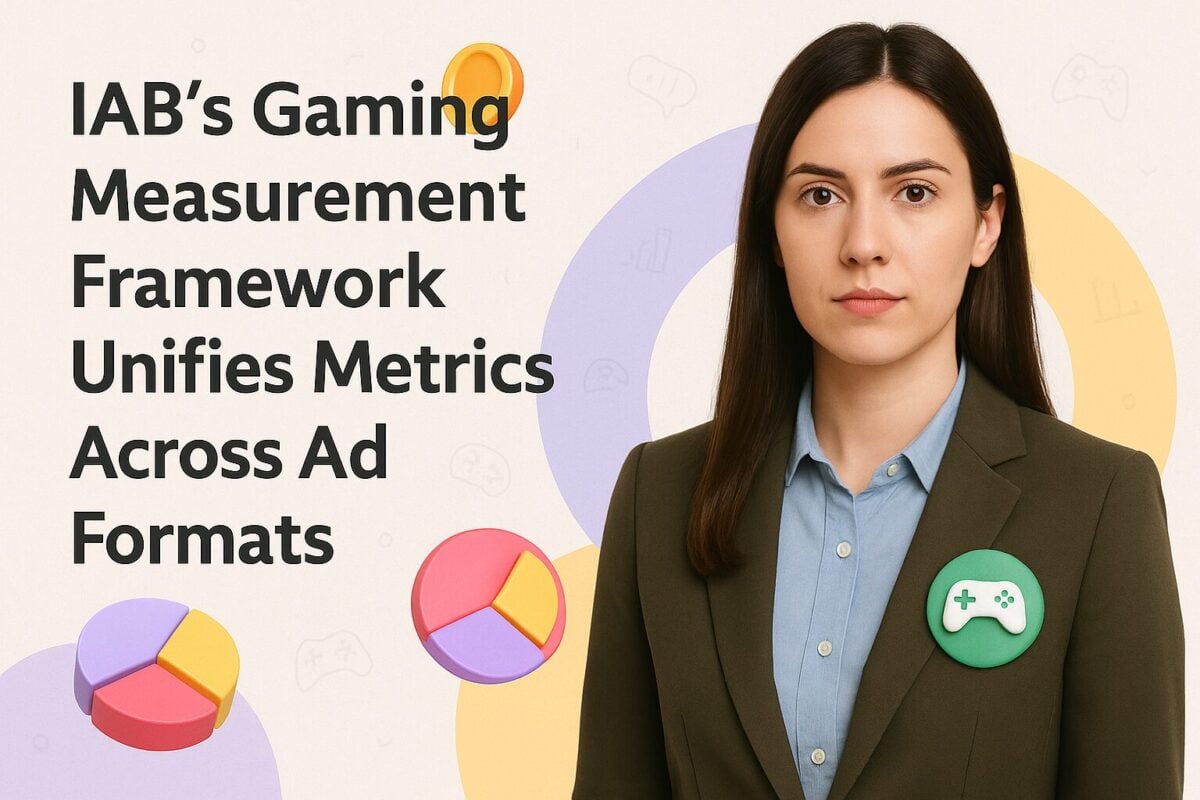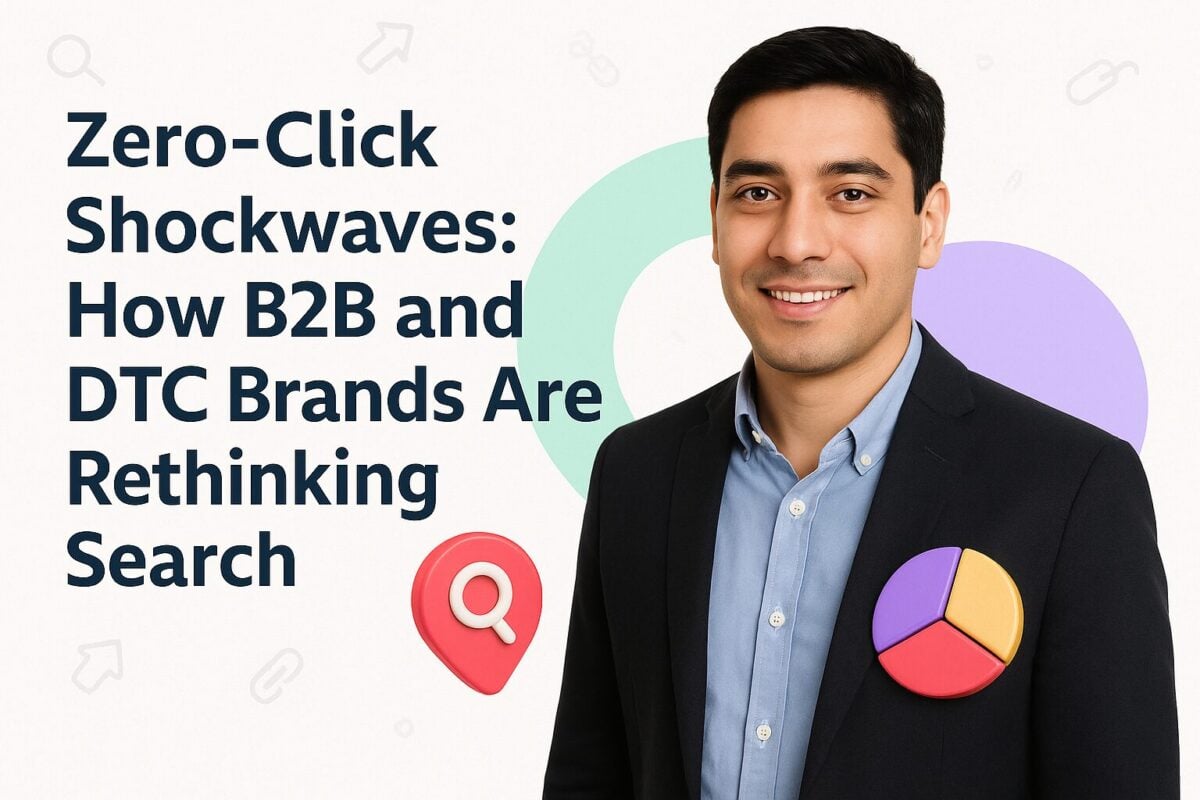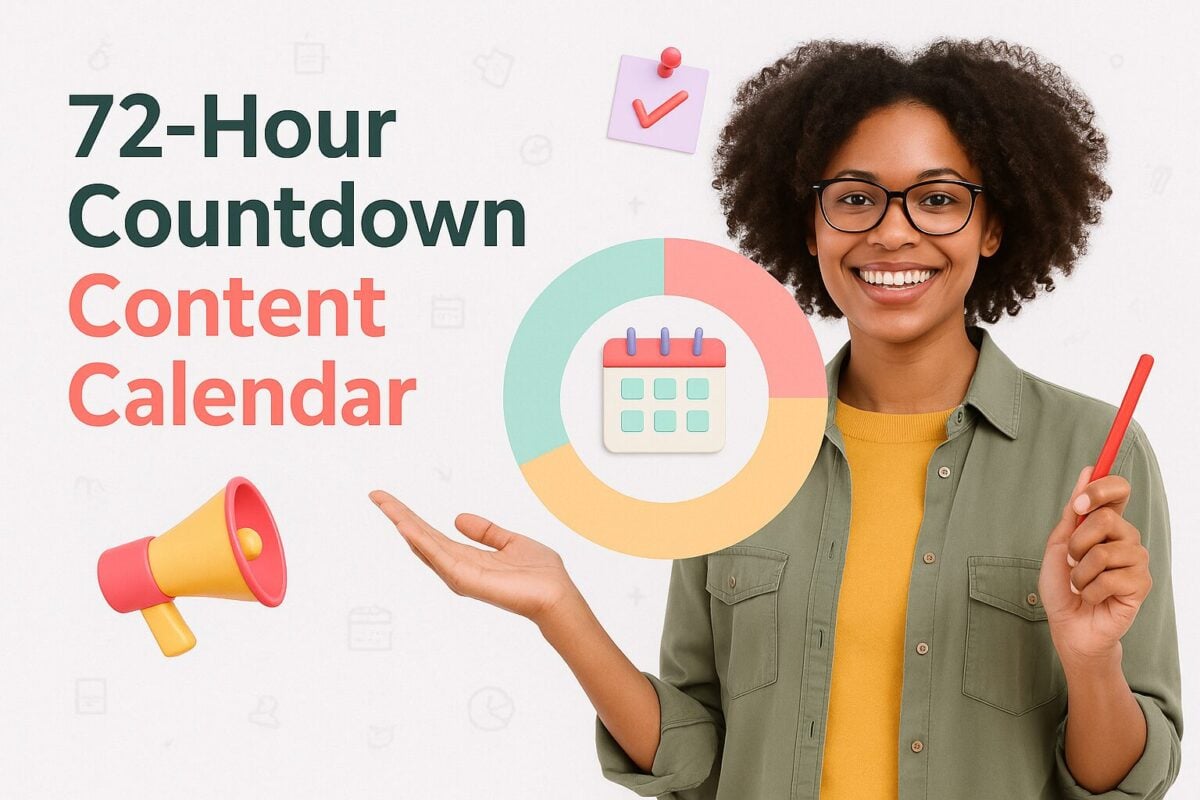Influencer Marketing Hub sets itself apart from conventional review platforms through the involvement of Digital Marketing experts such as Werner Geyser, Djanan Kasumovic, Camille Kennedy, Dave Eagle, and other notable industry figures. This expert team brings a profound understanding of the Digital Marketing landscape, assessing tools and platforms with an insider’s perspective on capabilities, experience, and industry acumen. Unlike user-generated review platforms, Influencer Marketing Hub’s evaluations are rooted in extensive firsthand experience and direct interactions with the tools and platforms in question. This ensures that the reviews are not only trustworthy but also deeply informed. High-caliber brands like NinjaPromo, Lyfe Marketing, and Sculpt undergo rigorous monthly evaluations, highlighting the platform’s commitment to identifying and showcasing top-tier solutions in Digital Marketing and beyond.
Influencer Marketing Hub has consistently been recognized by leading media outlets for our authoritative data, findings, and insights within the Digital Marketing landscape. Our platform is frequently cited as a trusted source of information, demonstrating the value and impact of our work in shaping industry standards and practices.
Influencer Marketing Hub employs an expert-driven methodology to evaluate Digital Marketing agencies, ensuring that our recommendations are both reliable and comprehensive. This approach is designed to help businesses and individuals find the best agencies to meet their specific Digital Marketing needs. Here’s how we assess the various agencies like NinjaPromo, Lyfe Marketing, and Sculpt:
Effective branding is so much more than simply adding a logo to your brand name and calling it a day. From typography to color combos, there are various other visual elements that play a critical role in branding. And, that’s only the elements that you see at first glance. Then, there are things like tone, brand values, etc.
Considering that there are various puzzle pieces that need your attention and that your branding will have such a big effect on the outcome of all your ventures, it’s a good idea to call in the help of experts. And, if you’re operating in the B2B sector that has a number of special considerations, it makes even more sense to turn to a branding agency that focuses on B2B businesses.
In fact, you would be surprised to learn how many agencies actually offer this type of service. To help you narrow down the search, we’ve created this list of over 28 leading B2B branding companies. Many of these agencies offer other valuable digital marketing services too. So, you’ll probably end up working with them long after your brand has come to life.
28 of the Best B2B Branding Agencies:
- 1. NinjaPromo
- 2. Lyfe Marketing
- 3. Sculpt
- 4. Clay
- 5. Cleverly
- 6. Thrive Internet Marketing Agency
- 7. Maxaudience
- 8. Velocity Partners
- 9. Elevation Marketing
- 10. Digital Silk
- 11. Merkle B2B
- 12. No Good
- 13. Ironpaper
- 14. Mower
- 15. The Mx Group
- 16. Sköna
- 17. Bray Leino
- 18. The Croc
- 19. Torpedo
- 20. MOI Global
- 21. Gravity Global
- 22. Earnest
- 23. Stein IAS
- 24. Walker Sands
- 25. Hinge Marketing
- 26. New North
- 27. Bader Rutter
- 28. Altitude Marketing
NinjaPromo is a branding agency that serves various industries, including B2B. Their team members are up to date with effective branding practices and ready to help B2B brands who need to create a brand from scratch or are looking to make changes to boost brand reputation and awareness. As they also offer social media marketing and management services, they’ll make sure that your branding content is consistently applied across different social channels. LYFE Marketing’s team of inbound marketing experts can help you to build your brand and accelerate growth. To help you develop brand awareness, they offer various social media marketing services that will help you gain more followers that fit your interests and demographics of your target audience. Then, they will help to boost engagement and increase website exposure to generate more sales. As a B2B marketing agency, they understand that B2B companies’ identities are different from others and will customize your marketing campaigns to fit the latest B2B digital marketing trends. Sculpt is a B2B social media marketing agency that was founded in 2012. They started out as a local social media management agency, but have grown into one of the leading global B2B marketing agencies that has worked with international brands like Pearson. After they’ve completed an audit, they will take another look at your brand messaging, personas, and business goals to help create a roadmap. Armed with this knowledge, they will create a social media marketing strategy to help you grow your brand and audience on social media. Based in San Francisco, Clay is a branding and UI/UX design agency. From naming to logo design to style guides, they can help you to create a unified system that stretches across all touchpoints and mediums. Some of the clients that they’ve helped with branding include Uber, SendGrid, and Coca-Cola. They can also partner with your marketing team to create a website that will tell the story of your brand. Not only will they make sure that brand storytelling is at the core, but also user experience. The result — a next-level, responsive website. LinkedIn is the go-to social media channel for B2B companies seeking to foster relationships with their prospects. Cleverly understands that building a B2B brand on LinkedIn differs from building a brand on another social media network. Its main goal is to help clients find the right prospects on LinkedIn and implement a personalized cold outreach campaign that closes deals. Cleverly also understands that building a brand on LinkedIn involves having a well-crafted profile and publishing thought-provoking articles that position your company as an industry leader. To get customers to trust your brand, you need to become an industry influencer, and sharing your expertise is the surefire way to do it. Cleverly also offers the following services primarily focused on the LinkedIn platform: Thrive Internet Marketing Agency is a full-service digital marketing agency and one of the top branding and marketing agencies in the US. As part of their social media brand management service, they’ll help you to identify your brand voice, design a brand guide, and implement a brand strategy that’s customized for each social media channel. They use a five-step branding process that includes: Before they kick off their branding process, one of their branding consultants will organize a meeting with you to discuss your needs, goals, and current brand voice. They’ll also first review your social profiles and conduct detailed market research to get a better idea of what your competitors are doing. Other key services include: Based in San Diego, California, MaxAudience is a brand management, web design, and advertising agency. During the 10+ years that they’ve been in business, they’ve helped to design and manage campaigns for some of the biggest global brands that include names like Intel. Online lead generation and conversion are at the core of what they do. Using an innovative approach that relies on database marketing, inbound search marketing, creativity, and analytics, they build medium and large-scale businesses into brands. Unlike some of the other agencies that work with companies in various sectors, Velocity Partners focuses only on serving B2B businesses. At the core of their approach to B2B branding, positioning, and strategy is what they refer to as a Galvanizing Story. Think of it as the red thread that combines everything. It helps with everything — demand gen, content programs, you name it. Their team will help you to narrate great stories that will help you to generate more revenue. For example, when LookBookHQ outgrew their name and story, they helped them to create a new story to encapsulate their new identity — PathFactory. Elevation Marketing was one of the first national B2B digital marketing agencies in the United States. From their offices in San Francisco and Phoenix, their in-house team of specialists work with a range of medium and large businesses across various industries including tech, healthcare, and manufacturing. Included in their long list of services is branding. They have a proven track record and have helped brands to uncover the truth about their brand, identify their value proposition, and connect with their target audience. Their team will delve deep into your business culture, audience’s views about your service, and markets you target to help you create a strong brand. Digital Silk is a full-service digital agency with the goal of helping brands to grow online. They’ve helped brands of all sizes and have worked with the likes of Sony, Xerox, and HP. They use a four-step process to help create brand strategies and before they get started strategizing, you can expect a kickoff call to gain your perspective. They can combine your brand strategy with other digital initiatives to boost customer experiences online as well as offline. Whether you need help with messaging or visual identity, their team can help to ensure that your brand is represented consistently across all channels. With more than 1,000 B2B experts, Merkle B2B is one of the biggest B2B branding agencies. They combine proven strategy development and direct creative to help drive conversions. Whether you need help with brand strategy, content, or brand research, they can redefine, transform, and humanize your brand. Using data-driven, strategic methodology, they will help you to connect on an emotional level with your audience and create stronger brand engagement. No Good blends two marketing practices — purpose-driven storytelling and data-driven strategies — to help B2B brands with brand recognition. According to their website they view branding “as the seed that jumpstarts growth” and performance as the “water and sunlight”. So, a marketing approach is no good without the other. By incorporating brand thinking and creative brand rules in a measurable performance funnel, they help their clients to optimize revenue potential and boost lifetime value. Included in their performance branding service are: Ironpaper is a B2B marketing and growth agency with offices in New York and Charlotte, North Carolina. They can help you position your business within key markets by creating a branding identity and brand guidelines. Their team can also help with creative positioning and core messaging to help create a cohesive brand strategy. Using an agile-LEAN approach, they will test concepts and messages with real prospects to help create a brand that tackles buyers’ needs. Mower describes themselves as an independent, full-service agency of thinkers and makers. Using strategy, creativity, innovation, and human understanding they build B2B brands from their 10 offices across the United States. To them, branding boils down to friendship. Good brands are like good friends – likable, trustworthy, and important. They can help you with all aspects of branding including: For example, for Detroit Diesel they created a rebrand campaign that helped to transform the B2B brand from an engine manufacturer to trucking technology leader. To do this, they updated its narrative that grabbed buyers’ attention and showcased the brand’s soul. The Mx Group has been in business for just over three decades, making them one of the most established B2B agencies. In fact, according to their website, they’re the third biggest independent B2B agency in the US. During the 30+ years that they’ve been in business, they’ve worked with clients across various industries that include SaaS, manufacturing, and hospitality and their impressive client list includes names like Siemens, Fujifilm, and Tempur Sealy. To help their clients’ differentiate their brands, they use a three-phase, Persuasive Process™ framework. It’s a proven strategy for creating a branding strategy that builds on buyers’ expectations and the strategic execution needed to make it happen. Sköna is one of the leading B2B marketing agencies with offices in Stockholm and San Francisco. Their goal is to help businesses create brands with humanity and soul, or as their LinkedIn page likes to put it, “transform B2B tech companies into brave brands with Silicon Valley expertise and Scandinavian sensibility”. Using their unique model, their team helps their clients to tell their real stories across all touchpoints and create memorable experiences. Before they can craft and share your brand story, though, they first listen. They realize that you know your business best and begin by listening, learning, and building a foundation using your vision and mission. As a full-service, creative agency, they also offer all the other marketing services. Founded in 1974, Bray Leino is another very established, full-service global agency. They help their clients to drive growth via creativenergy® (a term that they coined for the force that makes them think, create, and differentiates them from their competition). It doesn’t matter if you just started a new business or you’re running a decade-old brand, they can help brands at any stage get to the next level. Some of the B2B brands that they’ve worked with include Tefal, Barilla, and Cummins. To help their clients let their brands reach their full potential, they offer the following services: The Croc is a brand experience agency for B2B brands with offices in the UK and US. Using creativity, they help their clients, that include names like Cisco and Amazon Web Services (aws), to solve some of the most difficult business challenges. With regards to brand building specifically, they combine strategy, creative, media, tech, and data to create short-term results as well as long-term business effects. Included in their brand building services are: Based in the UK, Torpedo is an award-winning, full-service B2B branding agency that’s been in business for nearly two decades. During the time that they’ve been in business, they’ve worked with a number of well-known global brands that include names like Panasonic, Adobe, and Epson. Their team of over 70 work together with a shared goal of simplifying and humanizing B2B marketing. With regards to branding specifically, they offer a long list of services that includes: For example, for Panasonic Business, they created a European rebrand to help update its brand across Europe. The challenge was to highlight its technology’s innovative nature and the various ways in which their products can work together to deliver a connected solution. The results — an increase of over 30% in functional image appeal and 18% increase in emotional appeal. With offices in multiple cities across the globe, MOI Global is one of the top multi-specialists B2B agencies for tech companies. Founded more than three decades ago, they use their proprietary approach, Turning Heads™, to create head-turning solutions that help their clients to set themselves apart, transform, and expand. Not only has their work landed them a number of awards, but also an impressive client list that includes names like Adobe, Google Cloud, and Dropbox. As part of their creative services, their team of creatives, strategists, and planners helps brands to differentiate their stories. They will help you to shape the thoughts and feelings your employees and customers have about your brand. According to their website Gravity Global is the most awarded specialist B2B marketing agency across the globe. Using their strategic lense of “Fame, Admiration and Belief” they help to transform brands. With regards to branding specifically, they offer a wide range of services that include: Then, to help you keep the rep of your brand that you’ve worked so hard to grow protected, they can also help with public relations, crisis management and communications. Earnest is an award-winning B2B branding and marketing agency with offices in New York and London that have worked with big name clients like Instagram, Samsung, and Vodafone. Founded in 2009, they’ve built numerous brands, created strategies, and developed content programs and campaigns that captivate audiences while delivering results at the same time. In addition to branding, they offer various other disciplines that include strategic planning, campaigns, content, and experiential marketing. With regards to branding specifically, they can create new brands, develop brand strategies after acquisition, and help brands to reposition themselves to leverage new opportunities. Stein IAS initially started out as Industrial Art Services (IAS) in the 1970s. In fact, according to their website, they coined the B2B marketing category. Needless to say, if you’ve been in business that long, you’ve a long list of well-known clients to show for it. Included in their client list are names like Tetra Pak, Duracell, and Castrol. Data and intelligence are at the core of their approach. With regards to branding specifically, their team explores the needs of customers (both emotionally and rationally) to identify the best brand strategy. As one of the top Tech PR agencies, Walker Sands can help you to tell the story of your brand in the best possible way. In addition to PR, they can also help with branding to help improve awareness and customer sentiment, while boosting your sales and profit margins too. Whether you need help with a brand audit or need a strategy to reposition your brand, they offer a complete range of branding services. Founded in 2002, Hinge Marketing focuses exclusively on branding and marketing. Their team of strategists, researchers, writers, marketers, and designers use their proprietary growth algorithm to research their clients and their audiences, helping them to uncover opportunities for your brand. From brand research to signage, they offer a complete suite of services to help you build a reputation and increase visibility. Founded in 2008, New North is a marketing agency that helps B2B businesses with branding and lead generation. Using a proprietary approach, The RTX Framework, that divides marketing goals into 30-day, 90-day, and annual goals, they help their clients to find a balance between short-term opportunities and long-term strategy. With regards to branding specifically, they use a data-based approach. Their team will help you to research your market and identify unique selling propositions. Armed with this knowledge, they shift their attention to designing, testing, and refining key branding elements, before they strategically implement your brand across platforms. Based in Milwaukee, Wisconsin, Bader Rutter’s team of 240+ professionals can help businesses with all facets of modern marketing. Whether you’re a mid-sized or Fortune 200 brand, their team has successfully grown brands of all sizes for the past 50 years. Their Brand Consultancy Group shares senior-level consulting with practical solutions to create meaningful results. Headquartered in Pennsylvania, Altitude Marketing is an integrated, full-service B2B marketing agency that offers a wide range of marketing services. Included in their long list of services is branding and rebranding. As an integrated ancey, they can help you with various aspects needed to bring your brand to life like:1. NinjaPromo
Other key services include:
2. Lyfe Marketing
Other key services include:
3. Sculpt
Other key services include:
4. Clay
Other key services include:
5. Cleverly
6. Thrive Internet Marketing Agency
7. Maxaudience
Other key services include:
8. Velocity Partners
Other key services include:
9. Elevation Marketing
Other key services include:
10. Digital Silk
Other key services include:
11. Merkle B2B
Other key services include:
12. No Good
Other key services include:
13. Ironpaper
Other key services include:
14. Mower
Other key services include:
15. The Mx Group
Other key services include:
16. Sköna
Other key services include:
17. Bray Leino
Other key services include:
18. The Croc
Other key services include:
19. Torpedo
Other key services include:
20. MOI Global
Other key services include:
21. Gravity Global
Other key services include:
22. Earnest
Other key services include:
23. Stein IAS
Other key services include:
24. Walker Sands
Other key services include:
25. Hinge Marketing
Other key services include:
26. New North
Other key services include:
27. Bader Rutter
Other key services include:
28. Altitude Marketing
Other key services include:
Wrapping Things Up
Branding is one of the more exciting aspects of building a business. What’s more, with so many agencies available that specialize in this area, there’s no excuse for you to ignore branding. Plus, considering that B2B trends for the next few years suggest that the industry is in for some significant changes, you’ll want to get all the professional help you can get.
Moving forward, millennials will start playing a much bigger role in B2B businesses and it’s expected that brand transparency will only become more important. So, all the advice that you can get about branding will help you to stay relevant and leverage emerging trends.





































